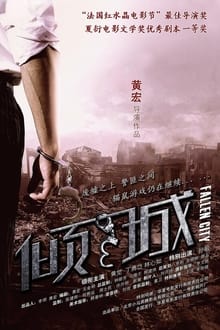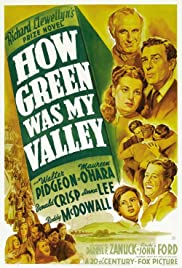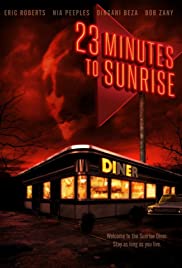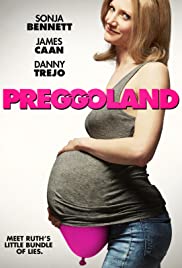
Set in 1973 and inspired by true events, ‘Wild About Harry’ follows the havoc wreaked in a teen girl’s life when she discovers that her widowed father is gay. Alternately comic and tragic and anchored by an impressive ensemble cast, the film captures both the freedoms and the homophobia of the time – all set against the backdrop of small town America on Cape Cod. British widower Harry Goodhart decides to make a fresh start and moves with his teenage daughters to Cape Cod in 1973. But Harry can’t leave behind the secret that threatens to tear his family apart. Adjusting to their new lives proves difficult for the girls when they discover that the connection between their dad and his partner is more than just a working relationship.
You May Also Like

Shubei town, southeast China, the present day. Five years after he fled with RMB 800,000 from a bank robbery, Liu Chuan returns incognito to the town. Policeman Wang Laoshi, who was on duty at the time of the robbery and was demoted for letting Liu escape, is working in the same district police station to which he was transferred after the robbery and still keeps an eye on Liu. By chance, Liu stays in some small lodgings in Wang’s district where Qin Xiaosong, a psychology graduate who’s run away from her domineering parents, is staying. Next day, Wang spots Liu in the street and gives chase, finally handcuffing him in a deserted warehouse. At that moment, the town is devastated by an earthquake and the building collapses. Wang is knocked unconscious and Liu steals his uniform. After rescuing Qin, Liu finds himself roped into saving other townspeople and becomes a hero in the locals’ eyes. Meanwhile, Wang recovers and sets out to hunt down Liu.

At the turn of the century in a Welsh mining village, the Morgans (he stern, she gentle) raise coal-mining sons and hope their youngest will find a better life. Lots of atmosphere, very sentimental view of pre-union miners’ lives. The film is based on the 1939 Richard Llewellyn novel of the same name.

A Miser Brothers’ Christmas is a sequel to the classic 1974 television special The Year Without a Santa Claus. The stop-motion animated special, produced by Warner Brothers Television Animation (owners of the post-1973 Rankin/Bass animated special library) and Toronto-based Cuppa Coffee Studios, premiered as part of ABC Family’s 25 Days of Christmas on December 13, 2008. Mickey Rooney reprised his role of Santa Claus, which originally debuted in the 1970 special Santa Claus is Comin’ to Town, while George S. Irving reprised his role as the Heat Miser. Original music was written by William K. Anderson, with the exception of “Snow Miser/Heat Miser”, which was written by Maury Laws and Jules Bass for the 1974 special. Eddie Guzelian (Lilo & Stitch 2: Stitch Has a Glitch) wrote the story and Dave Barton Thomas directed. The special was nominated for the 2008 Annie Award for Best Animated Television Production.

They say the darkest hour is just before dawn, and at the Sunrise diner it’s very late indeed. Four couples find themselves at an out-of-the-way 24-hour diner, but they are not all that they seem. Intertwined throughout the night are a middle age couple who are at a crisis in their lives, a cook who thinks he is finally finding his way forward, a waitress in a bad relationship and a young punk and his girlfriend who think this is the last stop before the new world of imagined ease. But the strangest of all are the dark stranger and young girl who don’t seem to be part of this world. A film about dreams gone bad, missed opportunities, love, fear and death.

A 35-year-old woman fakes being pregnant to fit in with her friends.

Desperate for companionship, a lonely, young Palestinian-American man agrees to marry an Israeli woman in need of a Green Card, forcing them to re-examine their respective cultural and familial traditions.

The struggles of a group of outcasts living in “Yentown”, in an alternate-future Japan.

David Carr is a British Communist who is unemployed. In 1936, when the Spanish Civil War begins, he decides to fight for the Republican side, a coalition of liberals, communists and anarchists, so he joins the POUM militia and witnesses firsthand the betrayal of the Spanish revolution by Stalin’s followers and Moscow’s orders.

Marisol (Alejandra Herrera) is caught between her possessive and aggressive cousin, Mauro (Eduardo Mendizábal), and passionate but inert lover, Mundo (Noé Hernández). Violence is a constant presence in their rural Mexican town, with gangs and guerilla fighters a steady presence. When Mundo has to flee, their connection turns from physical to digital even when Marisol is held captive by her cousin. Their communication via text, voicemail, and video is sporadic and frustrating, but is nevertheless a source of comfort, and their longing remains intense despite the distance. When Mundo returns, the stakes for Marisol are even higher, and it’s no longer a question of whether things will come to a head, but how and when. Might their desire and desperation ultimately play to her advantage?

A girl suffering from depression is forced to get her life together when she is taken involuntarily to a mental institution after trying to follow in her fathers footsteps, but failing in her suicide attempt. She finds unlikely friends, unwavering love, and a life she never imagined possible for a girl like her. All to find out some decisions can’t be undone.